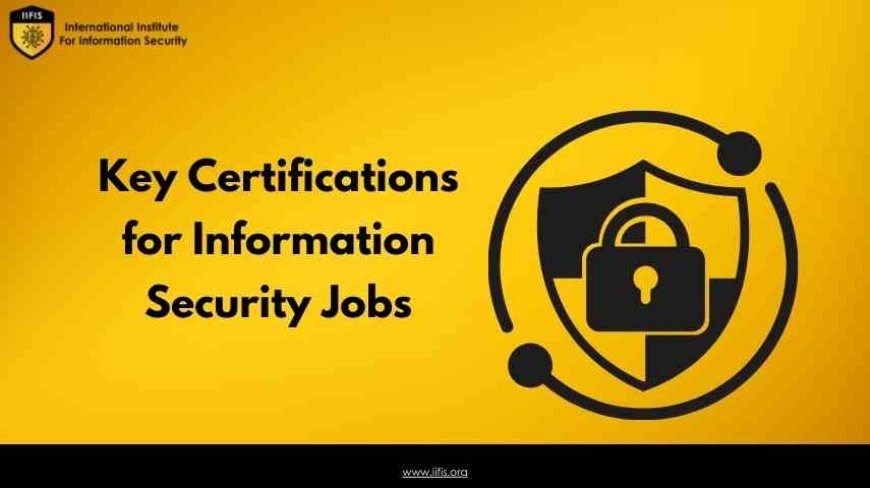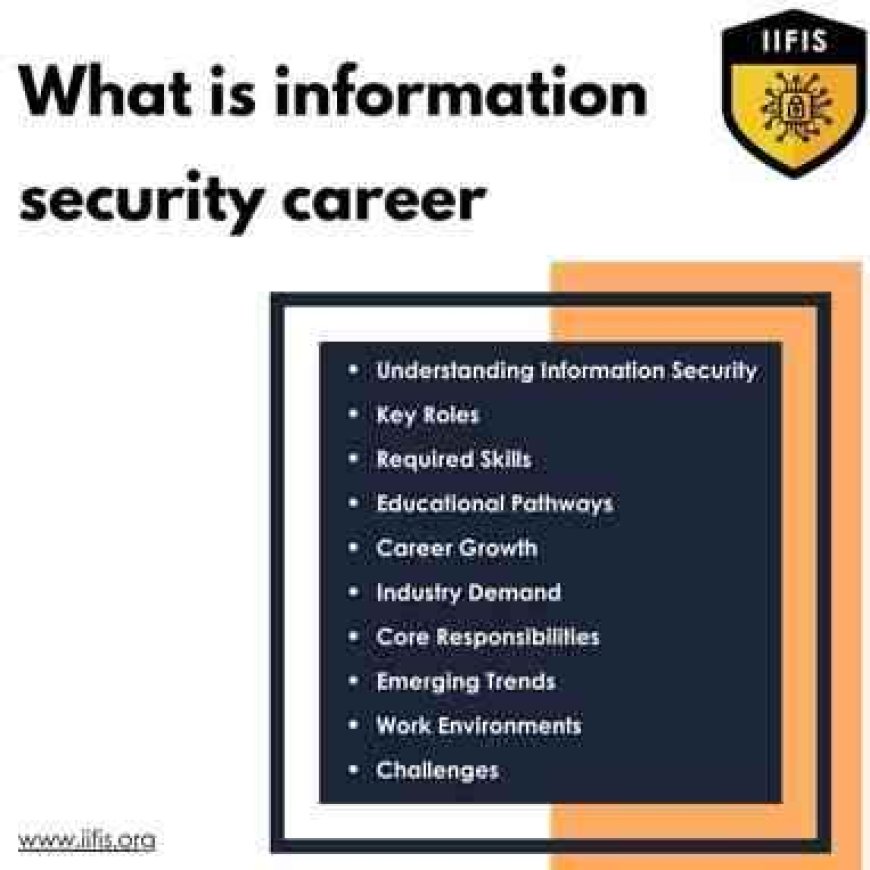Key Certifications for Information Security Jobs
Find key certifications for information security jobs. Boost your skills and job opportunities with well-known credentials in cybersecurity and data protection.

The need for skilled information security professionals is growing rapidly. With cyber threats becoming more common, companies need experts to safeguard their sensitive information and maintain strong security systems. Obtaining the right Cyber Security Certifications is essential for anyone aiming for success in this field. Whether you're looking to become an information security professional or a certified penetration tester, certifications like Information Security Certifications and Network Security Certification Programs can help you get there. From basic knowledge to advanced specialties such as Application Security Certification and Certified Cyber Security Manager, these credentials are crucial for a successful career in information security jobs.
The Growing Demand for Information Security Professionals
Today, the need for skilled information security professionals is on the rise. With cyber threats becoming more advanced and frequent, organizations are focusing more on protecting their data and systems. This increased focus on security is driving up the demand for experts who can defend against these threats. The increase in cyber-attacks and data breaches has highlighted the importance of having strong security measures. Because of this, businesses are actively looking for people with cybersecurity skills to strengthen their defenses. This has created a thriving job market for those interested in information security jobs.
There are many roles available in this field, from cybersecurity analysts and ethical hackers to information security managers and chief information security officers. The growing demand means there are plenty of opportunities for those looking to start a career in cybersecurity or advance in the field.

The Challenge of Choosing the Right Certifications
Choosing the right certification can be tough, especially with so many options available. For those aiming for information security jobs, the task becomes even harder. Certifications differ widely, from ethical hacking to network security, each with its own requirements and benefits. The risk of wasting time and money on the wrong certification is significant. Without a clear understanding of how each option fits with career goals, professionals may end up unprepared. It’s essential to carefully consider industry trends, the value of certifications, and personal career objectives.
- Many Certification Choices: There are numerous certifications for information security jobs, which can be overwhelming.
- Different Focus Areas: Certifications target various aspects of security, such as ethical hacking and network protection.
- Investment Risks: Time and money are at stake with each certification.
- Fit with Career Goals: It’s important to choose certifications that align with long-term career goals.
- Need for Industry Insight: Knowing current industry trends helps in making better choices.
What Certifications Are Required for Information Security Jobs
- Certified Information Systems Security Professional (CISSP):
- Importance: CISSP is well-known and respected, covering a wide range of security topics. It's key for senior roles.
- Impact: Shows advanced knowledge and experience, often needed for higher-level information security jobs.
- Certified Ethical Hacker (CEH):
- Importance: Focuses on ethical hacking techniques and tools to find and fix security issues.
- Impact: Crucial for roles that involve penetration testing and vulnerability assessment.
- Certified Information Security Manager (CISM):
- Importance: Focuses on managing information risks and security policies.
- Impact: Great for those looking to move into management or strategic positions in information security jobs.
- Certified Information Systems Auditor (CISA):
- Importance: Specializes in auditing and ensuring the security of information systems.
- Impact: Helpful for roles that involve auditing and enforcing security rules.
What is an Information Security Career
A career in information security involves protecting a company's digital assets from cyber threats. Professionals in this field work to secure data, systems, and networks, ensuring they remain safe and available. They set up security measures, respond to security incidents, and keep up with new threats and technologies. Certifications help prove skills and advance in various information security jobs.
Key Certifications for Information Security Jobs
When aiming for a career in information security, the right certifications can make a big difference. Here’s a guide to the most important certifications for information security jobs:
1. Certified Information Systems Security Professional (CISSP)
- Description: CISSP is a well-known certification showing your ability to create and manage a strong cybersecurity program.
- Key Areas: Security Management, Asset Protection, Security Engineering, Network Security.
- Why It Matters: It’s important for senior roles and those who need a deep understanding of security practices.
2. Certified Ethical Hacker (CEH)
- Description: CEH teaches ethical hacking methods to test and improve system security.
- Key Areas: Hacking tools and techniques, attack methods, and prevention strategies.
- Why It Matters: It’s great for those who want to work in penetration testing or offensive security.
3. Certified Information Security Manager (CISM)
- Description: This certification focuses on managing and overseeing enterprise security.
- Key Areas: Risk Management, Governance, Security Program Management, Incident Response.
- Why It Matters: It’s essential for those aiming for managerial positions in information security.
4. Certified Information Systems Auditor (CISA)
- Description: CISA is for professionals who audit, control, and assess information systems.
- Key Areas: Auditing Information Systems, IT Governance, Systems Development, and Implementation.
- Why It Matters: It’s useful for roles in auditing and control.
5. CompTIA Security+
- Description: This basic certification covers key cybersecurity topics.
- Key Areas: Network Security, Compliance, Threats, and Host Security.
- Why It Matters: It’s a good starting point for those new to information security jobs.
6. Certified Cybersecurity Associate (CCA)
- Description: CCA covers essential cybersecurity knowledge and practices.
- Key Areas: Basic Cybersecurity Principles, Risk Management, Incident Response.
- Why It Matters: Ideal for newcomers wanting a solid foundation in cybersecurity.
7. Certified Penetration Testing Engineer (CPTE)
- Description: CPTE focuses on advanced penetration testing skills.
- Key Areas: Testing Methods, Exploitation Techniques, Post-Exploitation.
- Why It Matters: Important for those specializing in penetration testing and vulnerability assessment.
8. Application Security Certification
- Description: This certification focuses on protecting software from threats.
- Key Areas: Secure Software Development, Application Threats, Security Testing.
- Why It Matters: Essential for those involved in software development and application security.
9. Network Security Certification Programs
- Description: These programs cover how to secure network systems.
- Key Areas: Network Design, Security Protocols, Network Defense.
- Why It Matters: Important for managing and securing network environments.
10. certified cyber security manager (CCSM)
- Description: CCSM focuses on the management side of cybersecurity.
- Key Areas: Cybersecurity Strategy, Risk Management, Governance.
- Why It Matters: Valuable for those aiming for leadership roles in cybersecurity.
Getting these certifications can boost your skills and improve your chances in information security jobs. Whether you’re just starting out or looking to advance, each certification offers unique benefits for different roles. By earning these credentials, you’ll be better prepared to handle the challenges of information security and protect organizational assets.























